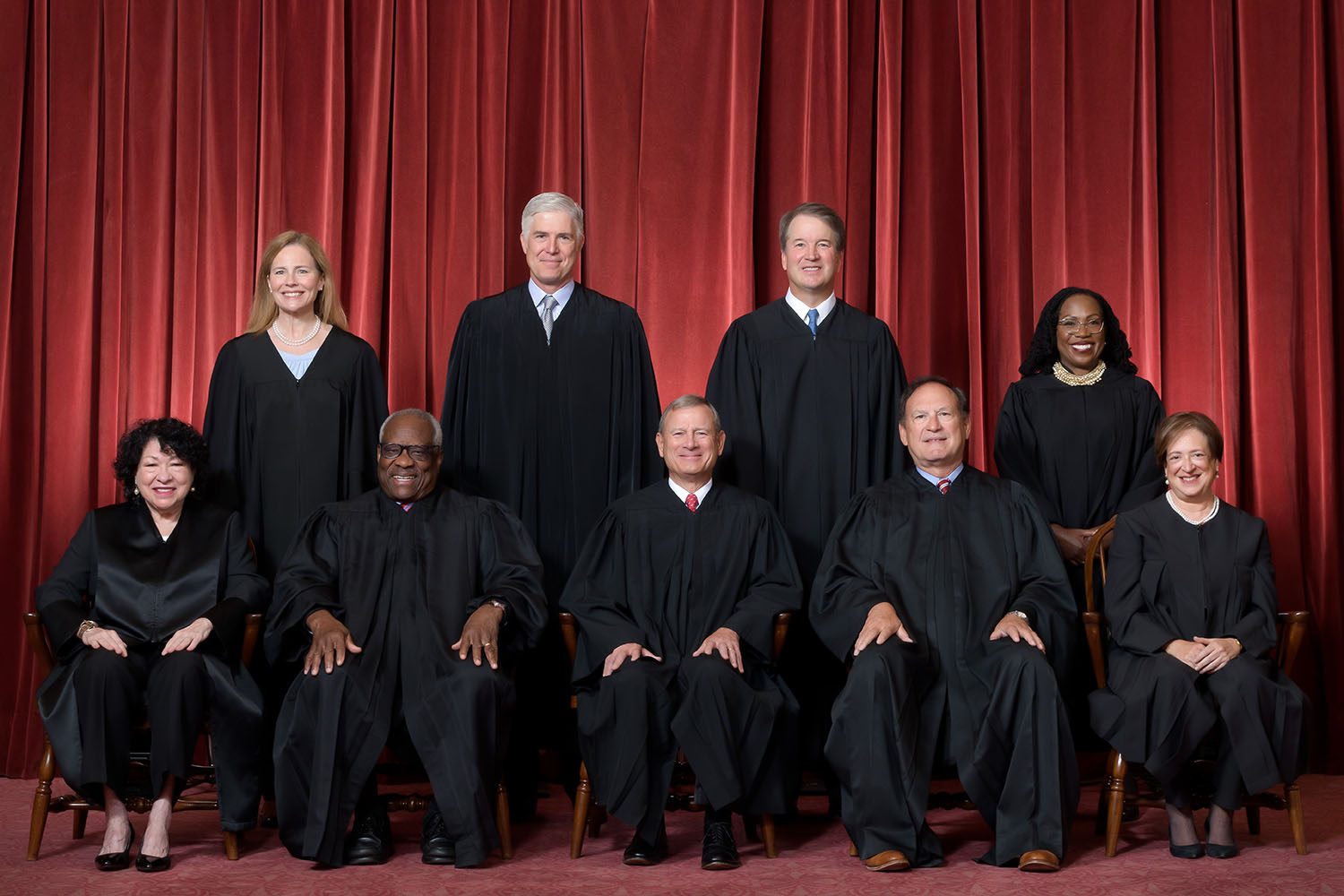
In a 6-3 ruling Friday, the U.S. Supreme Court said the federal Bureau of Alcohol, Tobacco, Firearms and Explosives exceeded its authority when it reversed its own policy on bump stocks by banning the devices in the aftermath of the October 2017 Las Vegas, Nevada mass shooting.
The gun prohibition lobby is already declaring the opinion to be putting lives in danger, while the firearms community is hailing the decision as a shot across the bow of the ATF, reminding the agency it cannot make up its own rules.
For many years, ATF had taken the position that semiautomatic rifles fitted with the devices were not machineguns. In the wake of the Las Vegas tragedy, the agency abruptly reversed itself, ordering bump stock owners to turn them in or destroy them. Michael Cargill, the plaintiff in this case, surrendered two bump stocks under protest and quickly filed a federal lawsuit. The case wound its way through the courts and finally was argued before the Supreme Court.
Writing for the majority, Justice Clarence Thomas stated, “We conclude that semiautomatic rifle equipped with a bump stock is not a ‘machinegun’ because it does not fire more than one shot ‘by a single function of the trigger.’
“For many years,,” Justice Thomas wrote, “the Bureau of Alcohol, Tobacco, Firearms and Explosives (ATF) took the position that semiautomatic rifles equipped with bump stocks were not machineguns under the statute. On more than 10 separate occasions over several administrations, ATF consistently concluded that rifles equipped with bump stocks cannot “automatically” fire more than one shot “by a single function of the trigger.”…ATF abruptly reversed course in response to a mass shooting in Las Vegas, Nevada.”
As noted by Fox News, the three liberal justices—Sonia Sotomayor, Elena Kagan and Ketanji Brown Jackson—dissented, arguing “the Court puts bump stocks back in civilian hands. To do so, it casts aside Congress’s definition of ‘machinegun’ and seizes upon one that is inconsistent with the ordinary meaning of the statutory text and unsupported by context or purpose.”
Reaction has been swift on both sides.
President Joe Biden issued a statement in which he said, “Notwithstanding this decision, my Administration will continue to take action. I took on the NRA and signed the Bipartisan Safer Communities Act – the most significant gun violence reduction legislation to pass Congress in nearly 30 years. My Administration established the first-ever White House Office of Gun Violence Prevention, made historic investments in mental health to support people in times of crisis, and expanded background checks to keep firearms out of the wrong hands.”
The president renewed his call for a ban on so-called “assault weapons” and bump stocks.
Everytown for Gun Safety issued a statement on “X” (formerly Twitter) in which it declared, “The Supreme Court has put countless lives in danger. Congress can and should right this deadly wrong by passing bipartisan legislation to ban bump stocks that has already been introduced in the House and Senate.”
However, Adam Kraut, executive director at the Second Amendment Foundation noted, “Today’s Supreme Court decision demonstrates that it is impermissible for executive agencies to rewrite the law. ATF exceeded its statutory authority by issuing a rule that was logically inconsistent with the plain text of the statute and cut into the prerogative of Congress. As the executive branch has continued to use ATF to implement its will and circumvent congressional authority, we are optimistic that today’s decision will send a message that such actions will not be tolerated and that the courts will strike down more regulations inconsistent with the law as Congress wrote.”
Kraut is a practicing attorney who filed the first lawsuit challenging ATF’s final rule in 2018 while in private practice.
SAF founder and Executive Vice President Alan Gottlieb added, “This is a significant victory for gun owners because it reminds the ATF it simply cannot rewrite federal law. The agency has just been reminded that it can only enforce the law, not usurp the authority of Congress.”